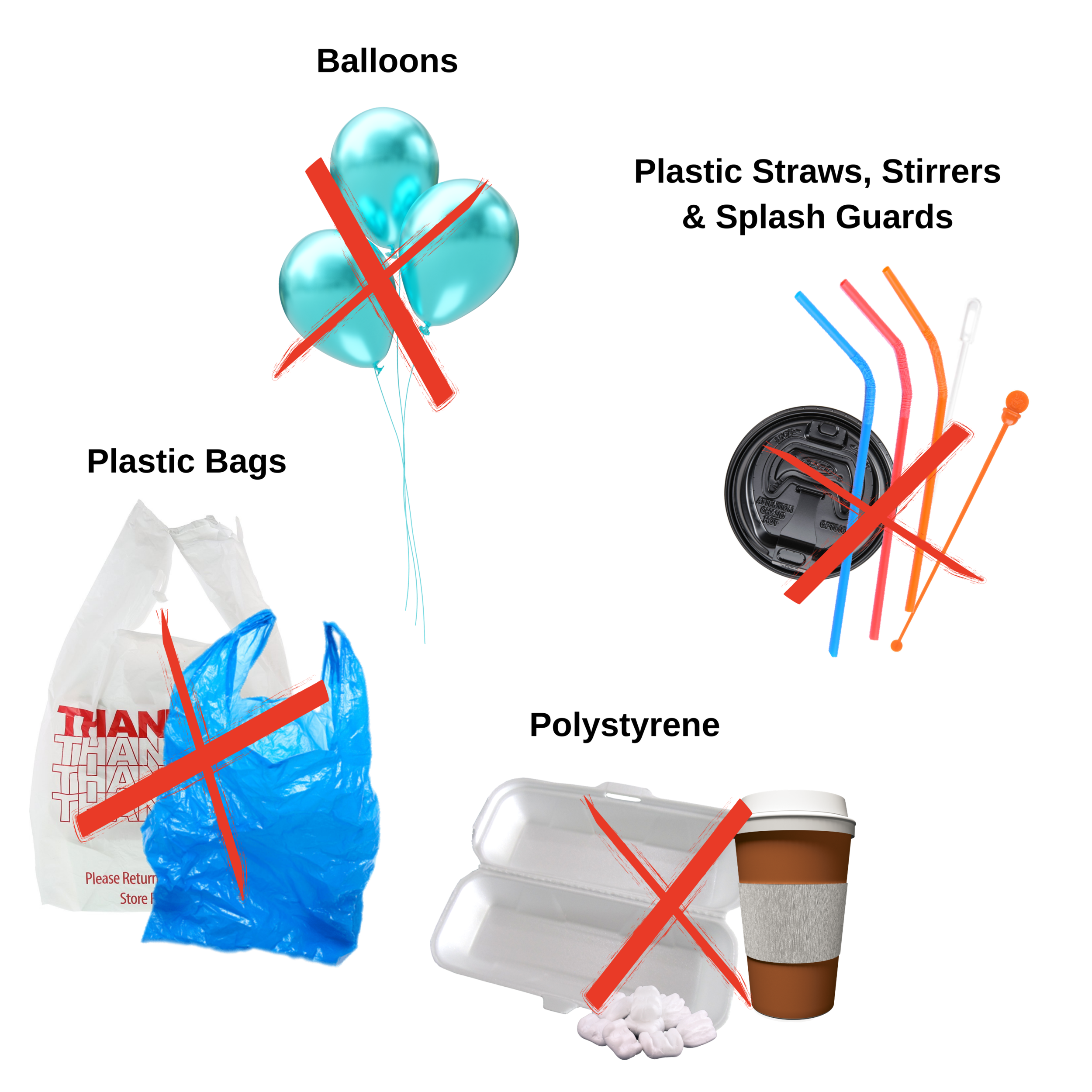LEGISLATION
JUMP TO CONTENTS
Packaging Reduction Legislation (Extended Producer Responsibility)
New York State Packaging Reduction & Recycling Infrastructure Act
The Beyond Plastics Bill (Ban on single-use plastic bags, plastic straws, stirrers and splash guards, polystyrene, and balloon releases)
Packaging Reduction or Extended Producer Responsibility
Known as EPR for short, Extended Producer Responsibility is a policy approach in which counties, states and large entities hold producers legally and financially responsible for mitigating the environmental impacts of their products and packaging. It’s also sometimes called “Polluter Pays”.
It’s a commonsense policy that’s been more widely adopted in Canada and the European Union. Although interest is growing here in the U.S., there are few existing EPR laws on the books - just a handful of states have mandated EPR programs for products like paint, batteries, and mattresses.
When done correctly, EPR policies can create jobs, reduce waste, preserve precious natural resources, decrease greenhouse gas emissions, and lighten the financial burden for the under-funded municipalities and agencies tasked with waste management and recycling.
We’ve created many materials to help ensure that states enact effective EPR policies that avoid common pitfalls. Learn more. >>
Looking for the New York State Packaging Reduction & Recycling Infrastructure Act? Click here.
The Break Free From Plastic Pollution Act
Reintroduced in Congress in October 2023 by Senator Jeff Merkley (D-OR) and Representative Jared Huffman (D-CA), the Break Free From Plastic Pollution Act is the gold standard of federal legislation to make meaningful reductions in the amount of plastic pollution the U.S.
You may be wondering what makes this bill so special? Most importantly, it will shift the burden of plastic cleanup to where it belongs: on the corporations that produce this waste. It would also put a freeze on the build out of new plastic production facilities, ban so-called “chemical recycling” and support tried and true solutions to help reduce needless plastic pollution.
The Beyond Plastics Bill - More Ban For Your Buck!
Since more and more plastic pollution is washing into our waterways and oceans, filling our landfills, and being burned in incinerators, you may be feeling a sense of urgency about trying to reduce the amount of single-use plastic in circulation.
We’re not going to lie to you, it can take time significant amounts of time and effort to pass a piece of legislation. That’s why we recommend attempting to ban many of the most common sources of single-use plastic pollution – plastic bags, plastic straws, stirrers and splash guards, polystyrene, and balloon releases – in one fell swoop! Not only are these some of the biggest sources of single-use plastic pollution, they’re also relatively easy to replace with plastic-free and reusable options or do without altogether.
Luckily for you, we’ve got the sample bill language you need to do it right here as a Microsoft Word document to make it easy to adapt however you need to. Learn more. >>
Legislation to Ban or Pause Synthetic Turf Installations
Synthetic turf poses a risk to the health of communities. View or download our fact sheet on artificial or synthetic turf here. We’ve created some sample language for moratoriums and a ban that you can use to attempt to stop the installation of artificial turf (aka synthetic turf or plastic grass) in your town, city, county, or state below:
Map Of U.S. Plastics Reduction Policies
Wondering what plastics policies are already in place across the U.S.? Check out Surfrider’s beta map! Drawing on the efforts of their grassroots chapter network, they’ve compiled a dataset that includes over 1,000 U.S. plastic reduction laws. This map is the first visualization of their dataset and currently features bag, polystyrene, and straw laws. Future versions will include more policies and more details. To use the map:
Click on the open icon with the arrow to the top left to show all the layers.
Click the icon on the top left to show all the layers.
Select and deselect layers of the map to show state and/or local laws for each product type: bags, polystyrene, and straws.
Click on an icon for specifics about that law.
Note: the main limitation of this mymaps visualization is that if an original and amendment have been adopted for the same jurisdiction and product type, only one law will be visible. Surfrider is working to correct that. Please note that this map is a work in progress. If it is missing any laws, please let Surfrider know by filling out their corrections form!





